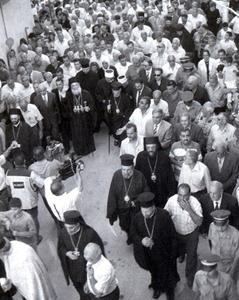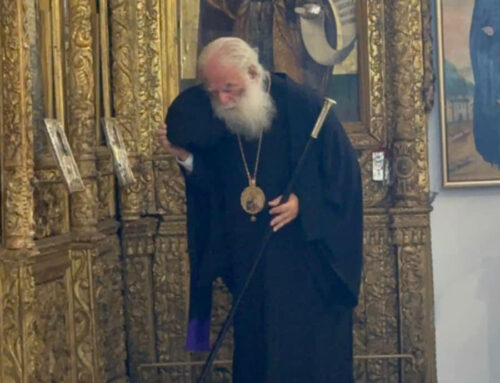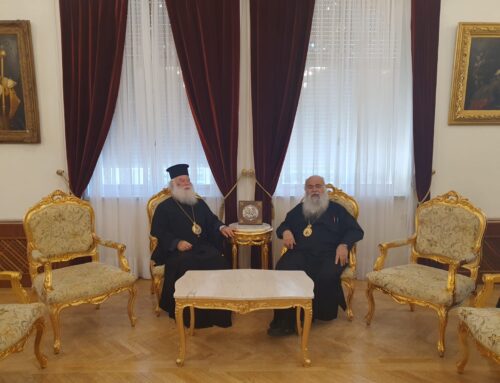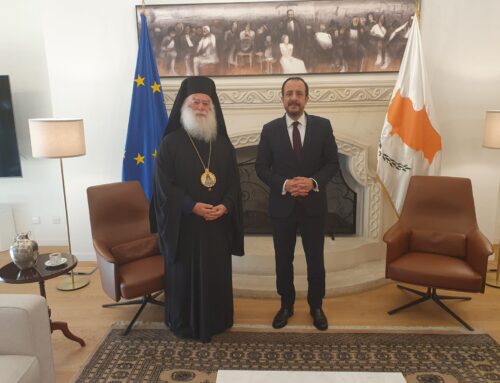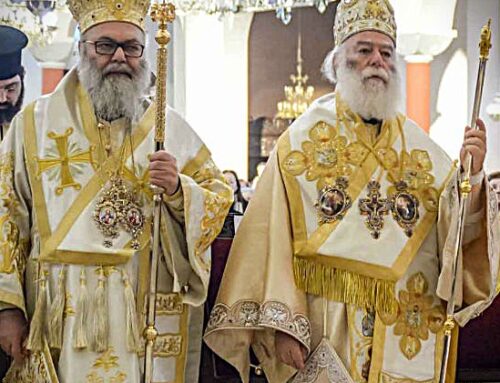With God’s Grace we are in the first week of the new ecclesial year, praying that fragmented humanity to restore society with compassion, love and forgiveness, even with the existence of God Himself.
Certainly, the Church, as carrier and propagator of the message of salvation of the Gospel, knows well that humanity’s struggle to be transformed in Christ is full of distractions and obstacles which are often insurmountable. Besides, the Church does not exist solely for us, but for all people. If there were no people, the Church and its Theology would have absolutely no reason to exist.
However, the social and moral responsibility of the Church are heavy, particularly these days when mankind, as humans as well as a society, is experiencing with intensity an unprecedented crisis. A crisis which has disproved the myth that mankind is able to reach fullness through the reckless acquisition of material goods. A crisis which has disproved the myth that mankind can achieve prosperity through unrestricted consumption.
And now that the false security of material goods has been dashed and the consumer dreams have dreams have collapsed, the realisation that mankind has been left is vulnerable overwhelming. Vulnerable in a cynical global environment seeing that it is in a world where there is global economy, but not also a global just and welfare government to assist the needy. Vulnerable in a national liquid environment, because there are national governments, which often have no control over their national finances for the benefit of the financially weak.
In the Middle East, the place where the seed of the rebirth of man in the Theandric person of Jesus was placed, it is not only the inability of politicians to control the standalone and unchecked economic trend that diasappoints. The weakness of people, citizens and politicians, to build a culture of coexistence based on the mutual respect of individual and collective cultural and religious references, devastates and intimidates morale even more”.
And while in North Africa the unknown path of the Islamic version of democracy is being traced, with positive examples so far, in Syria, the bloodiest chapter in the so-called Arab Spring is being written. The country in which the name Christian was heard for the very first time, is like Pandora’s box. The warring factions threaten to open it, as the highest bidder of a ruthless conflict which is primarily powered by the inability to tolerate different political, racial, social or even religious identity.
And if the Balkans were the powder keg of Europe during the previous century, a possible diffusion of the Syrian crisis to the broader region threatens to turn the Middle East into the powder keg of the world.
The Triune God has charged the faithful who live in the Middle East, the cradle of Christianity, for two millennia now, to witness “a homeland of another system” (Origen to Celsus, 8,75), the Kingdom of God “on earth as it is in heaven” (Matthew 6:10).
Continuing with God’s help the uninterrupted proclamation of the good news of Jesus Christ in the historic ramparts of our religion, I seize this opportunity to express my deep concern regarding the continuing bloodshed in Syria. I affirm my faith in the conscience of the Orthodox Church that man, as the image of God, has heavenly roots, incomparably superior to the humble instincts which trigger senseless violence.
I pray that love and forgiveness, reason and justice, peace and brotherhood will prevail, “that the creation itself also will be set free from its slavery to corruption into the freedom of the glory of the children of God” (Romans 8:21). I beseech the Almighty God that very soon the harsh reality of passions and trials will give way to the resurrection of humanity, so that we can effectively pronounce “Let us depart in peace”.
†Theodoros II of Alexandria
—————————————
Photograph from the cordial visit of His Beatitude the Pope and Patriarch of Alexandria to the Antiochian Patriarchate (Damascus, 20-25 June 2007)




